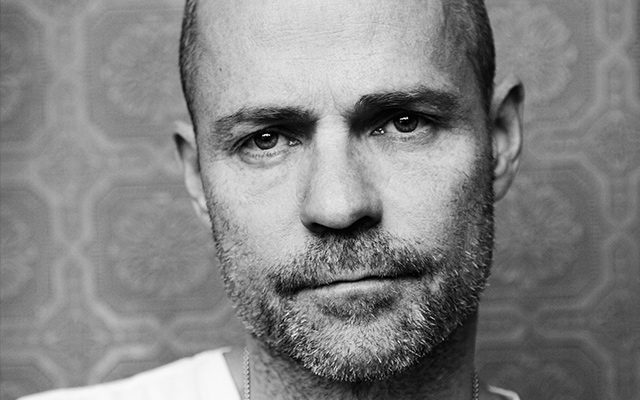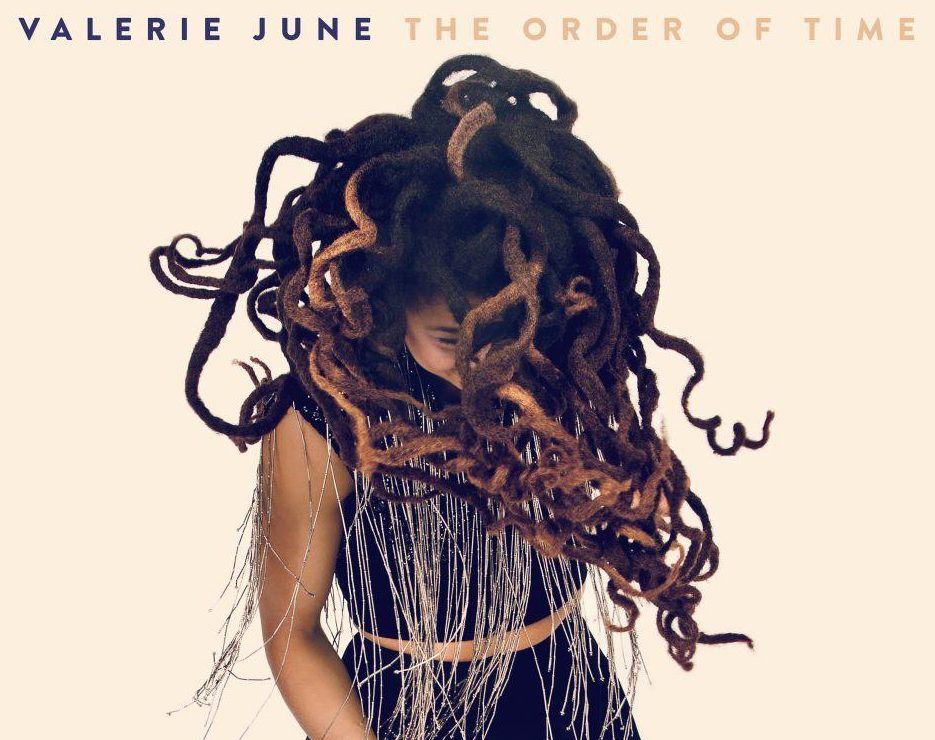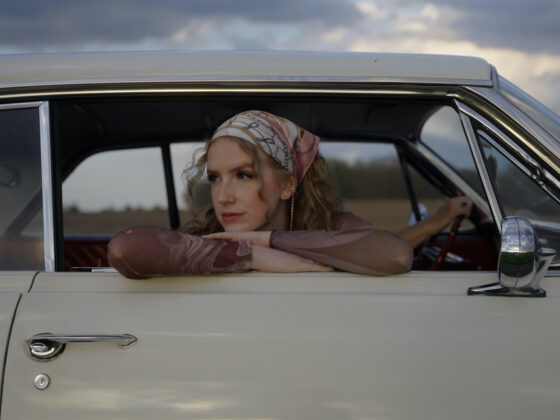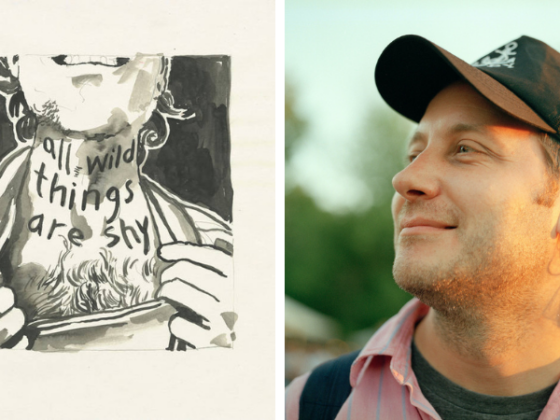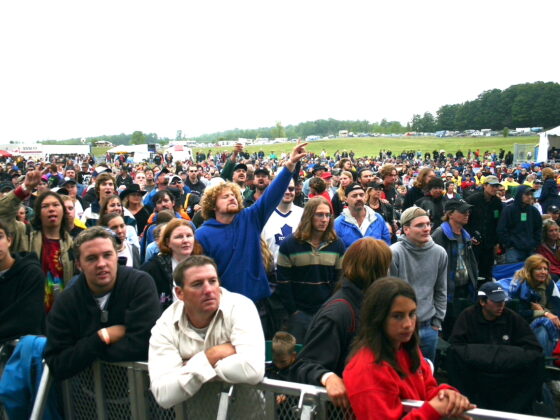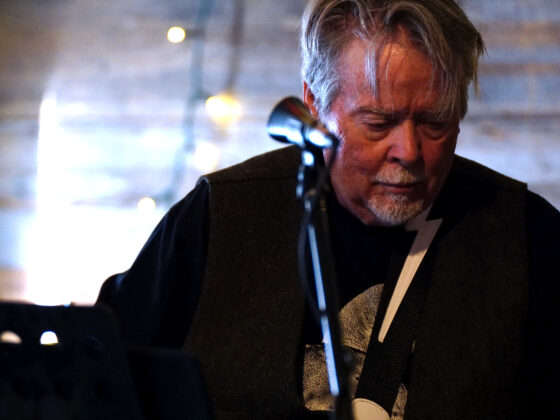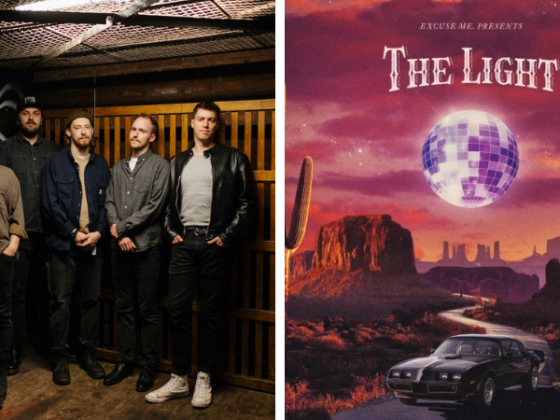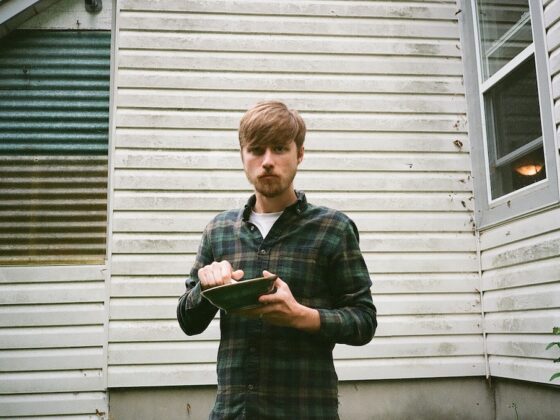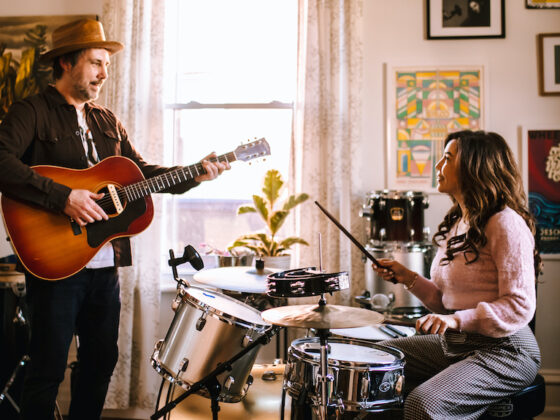I don’t know how to write about Gord Downie. Writing never comes easy to me as it is, but it’s never been so difficult as I sit here listening to Long Time Running with tear-stained cheeks. He was bigger than life, and I don’t want to mess this up.
I’m worried I’m going to try to out-hyperbole others for effect and it won’t be genuine. So I’ll try not to do that. I’ll just explain what he meant to me because one thing I know is that Gord meant something to all of us who were paying attention. Each of us has that one song that takes us back to a time on a road trip or around a campfire where we felt the essence of being Canadian deep in our bones. He is an undeniable part of Canadian culture in a way we may not always be able to articulate, but can always recognize.
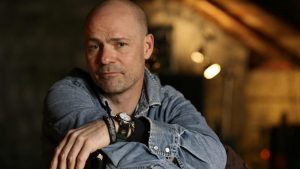
I’ll give you an example: When I was 19, I backpacked across Europe. It was my first time so far removed from my culture and even though I’d met a group of Aussie friends, I still felt lonely at times. I was really into bands like Janes Addiction, Soundgarden, Alice in Chains and Nirvana, so those were the tapes I brought with me. I remember being in the Swiss Alps in March on one particular afternoon when, from my small cabin, I heard Courage playing from the patio bar across the campground. It was as though something inside me switched on: a gene in my Canadian DNA.
It was the first time I realized how much the Hip was part of my Canadian-ness and how important that was. I spent the rest of the afternoon drinking beers with the Aussie bartender who’d been given a CD from his Canadian friend and had become a fan. It was as though, being Canadian, I had some kind of ownership over this music that my new friend had fallen in love with. What a proud feeling; that’s what patriotism is. Not some flag I stitched onto my backpack to show people I wasn’t American. The Hip’s music was an export that all Canadians could claim. But mostly it was something that we didn’t export at all. We kept it for ourselves. Gord was just for us.
Fully Completely was playing everywhere in the Spring of my Grade 10 year. I had missed out on the releases of Road Apples and Up to Here – those were my older brother and sister’s albums. Mine was Fully Completely and I spent the summer wondering what a Pigeon Camera was, where the Hundredth Meridian ran, and why Bill Barilko disappeared.
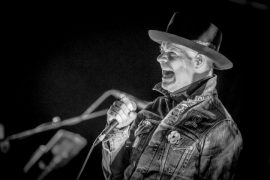
I went out to Sauble Beach that spring to spend the May 2-4 at a campground with friends, but when we didn’t bring enough money to get in, we walked the three hours back to the main beach. That long trek back is one I’ll remember forever. It was unseasonably warm, and so our backpacks were full of piss-warm Labatt Crystal. But every cottage we stopped at on our travels was playing Fully Completely. There is just something about listening to that album around those campfires that still fills me with a memory of being a teenager around a fire on May 2-4. When I ask myself what it is in our collective Canadian DNA that makes Gord’s voice – his words, his message – so Goddamn moving, I know that’s part of it.
It’s not something I can clearly articulate except to explain some ways in which Gord has impacted me, and to know that others have similar experiences. It’s a part of our shared values as Canadians. He tapped into that. We needed him to.
It wasn’t long after that May 2-4 weekend that I was hooked on the Hip. I went back into their catalogue and felt the emotion of Long Time Running and Fiddler’s Green. All it takes is the first line of each of those to be sung, and I’m in a trance. And I felt the raw power of songs like Three Pistols and Blow at High Dough, and they were staples at parties throughout my high school years. I even tracked down their first album and rocked out to Last American Exit. It’s fair to say I tilted back a few Labatt Wildcats to Gord’s voice on those first four albums.
And when the artistic Day for Night came out, I was starting to explore some creative outlets myself in the form of poetry and writing. I kept it hidden from my friends because it wasn’t ‘cool’ but Gord changed that; he made it hip.
He was a poet. He didn’t deny it. He made me feel good about writing lines that were cryptic or only made sense to me, lines that tried to navigate what it was to be Canadian. He did it so well, and I wanted to, too.
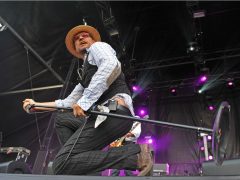
And then he came out with a song called Poets and made the medium even more accessible by attacking the ivory tower institution that tries to keep it out of reach. In essence, he brought it to the people. I was in university when Coke Machine Glow came out, and I bought that orange covered collection of poetry and pored over his lines about touring Canada and the idiosyncrasies of travel. In the accompanying album, songs like Chancellor, possibly the best song he ever wrote, shook me. Who else can rhyme pyjamas with windows and make it sound so fucking easy?
And there were some Hip albums that I didn’t pay attention to as much as I should have. I went through a serious jam band phase and was only interested in the next String Cheese Incident album while Music @ Work and In Violet Light were being released. I took the The Hip for granted for many years. It wasn’t until We Are the Same in 2009 that I fell back under the spell, fully and completely. One song that I was hoping to hear in the final Kingston set was It’s a Good Life If You Don’t Weaken off that 2009 album because I really like that line. It’s one my grandpa used to say and one that I think is poignant for what Gord just showed us. He didn’t weaken. And I hope he considered his life a good one when he gave one final look back. I think we all told him it was by our messages, sentiments, and sing alongs during this past year.
The final album came alongside news of his terminal cancer and the nation let out a collective sigh and shed a tear, and wondered what our country would look like without our Man Machine Poet in it. And now, as we absorb the news we all knew was coming, we see what that Canada looks like. As Trudeau tearfully said “We are less as a country, without Gord Downie in it.”
And so, as we say goodbye to a man who died at the age of 53, we say goodbye to more than a man.
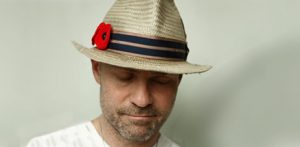
We say goodbye to figure who grabbed the attention of an entire country for thirty years and was humble enough to end his last show in Kingston by saying ‘Thanks everybody. Thanks for listening to that. Thanks for listening, period. Have a nice life.” That was one of the many times I’ve shed a tear for Gord this past year. He actually thanked us all for listening when it’s all we wanted to do. It’s all we still want to do. But there are no more cryptic words, no more stage theatrics, no more poignant lines. The final tour, was in fact, their last. And I’ll keep that memory from the Toronto show deep in my heart.
I’m not going to try to out-hyperbole anyone for effect here. We all know what Gord Downie was. As I was texting with the people close to me this morning, a friend wrote back: “I think he’s the most important person to me that I’ve never met.”
I think there are many people who feel that way. That’s why it hurts so much. We all secretly hoped for a miracle. Now we’re left remembering him, knowing we’re not going to see him plant one of his legendary kisses on anyone anymore.
But as Gord said, “You can’t be fond of living in the past” so I’m not going to dwell in his death, but keep his spirit alive by promoting the arts for the next generation of me’s who need role models to tell them it’s okay to be a writer, a poet, an artist, an activist. It’s cool to be someone who cares about Canada and about social justice. You can be smart and sensitive while also being tough and courageous.
Gord, you so iconically sang: “You’re gonna miss me/fully and completely” and you had no idea when you wrote those words in ’92, that there’d be a whole country who would be taking them literally 25 years later. With no hyperbole, exaggeration or pandering, we will miss you Gord, Fully and Completely.
Rest in peace, Gord Downie.
Written by Jesse Wilkinson

